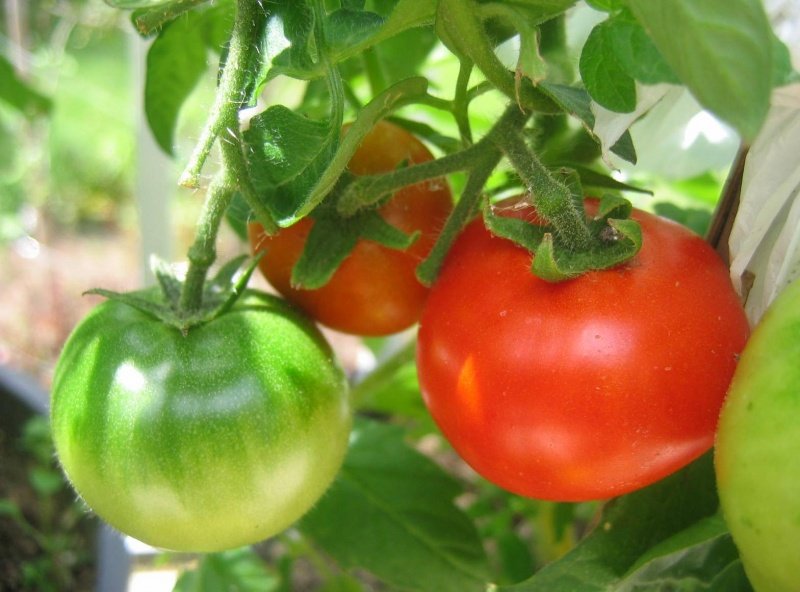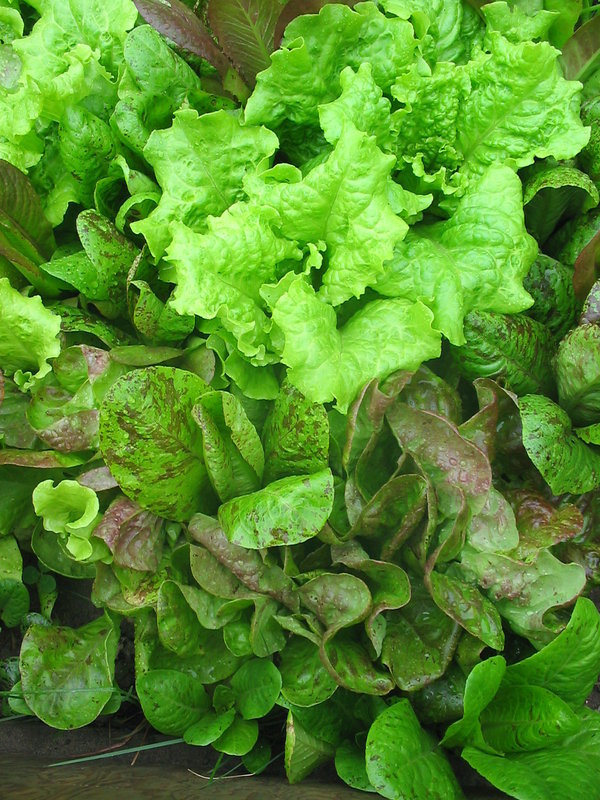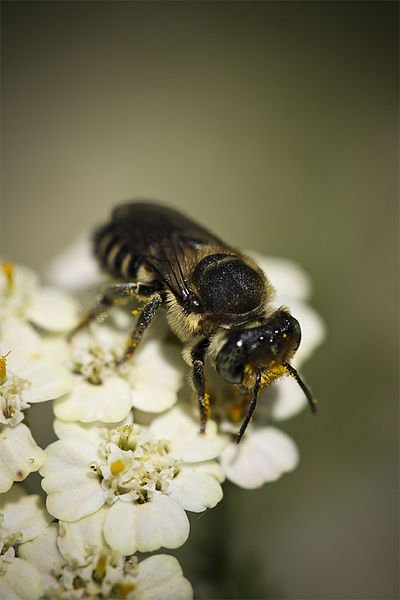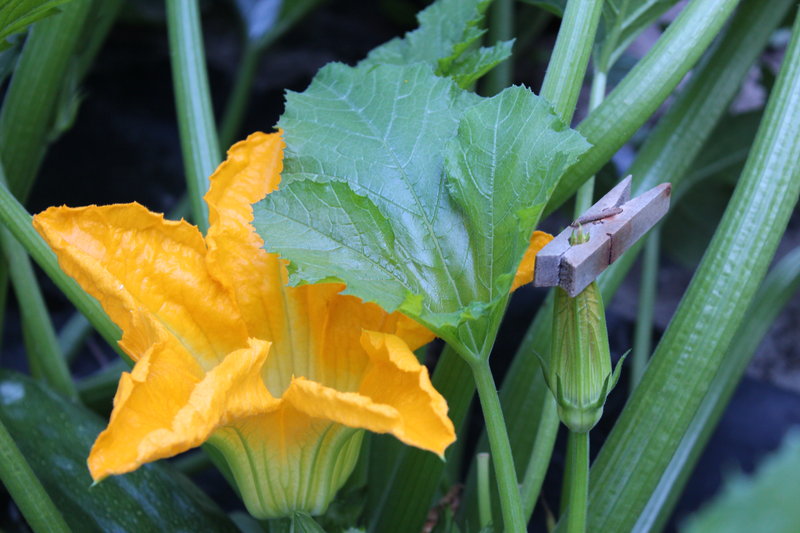August 2015
Harvest Is Here!
Depending on where you are in the country, you may be well into harvesting the fruits of your labour, or just enjoying the first few delicious veggies out of your garden.
Here at Seeds of Diversity, we are busy sorting through and storing an incredible donation of tomato seeds, creating and maintaining a pollinator fedge, and continuing work on our Vegetable Seed Producers Network (VSPN). Read on to find out more about all these projects, and to learn some new tips on how to grow a great fall garden.
Happy harvest!
Tomatoes Galore!
 Seeds of Diversity has recently received a very generous donation from the Creston Seed Bank in British Columbia: 839 different varieties of tomato seeds! Patricia Huet, who manages the Creston Seed Bank and Dan McMurray collection (from which the tomatoes came), organized and packed up 839 of 1600 tomato varieties in the collection so that the Creston library could be downsized to a more manageable size.
Seeds of Diversity has recently received a very generous donation from the Creston Seed Bank in British Columbia: 839 different varieties of tomato seeds! Patricia Huet, who manages the Creston Seed Bank and Dan McMurray collection (from which the tomatoes came), organized and packed up 839 of 1600 tomato varieties in the collection so that the Creston library could be downsized to a more manageable size.
How to Grow Autumn Vegetables

When I started gardening, I was taught that you had to plant all your seeds during the long weekend in May. That made for a short lettuce season, and a shorter radish season. Beans all came at the same time, and there wasn't really much left in the garden by the end of summer. What I learned back then was wrong - don't do it.
Later I learned that some vegetables prefer cool weather, and they even tolerate some frost. Brassicas (like kale, cabbage, and kohlrabi) and peas can be sown as early in the spring as you can get the seeds in the ground. Root vegetables, such as beets and carrots, tolerate cool soil and cold air, so they can go in the garden about a month before the tomatoes and beans. You can plant most leafy greens, like lettuce and spinach, when only light frosts are likely, and you can keep sowing more of them to get a consistent harvest throughout most of the summer. The trouble is, once it gets too hot for seeds to sprout reliably, it gets more difficult to grow these cool-weather crops in mid-summer.
The Pollinator Fedge
 One of the joys of being Pollination Canada's outreach coordinator is delivering presentations to community groups, such as gardeners, naturalists, and school students. It is delightful to introduce people to some of the 800 native species of bees in Canada (the sweet honey bee is from Europe), and amaze them when they discover that pollinators are responsible for 1 in 3 bites of the food we eat. People are concerned to learn that despite the fact that bees are “keystone species” – responsible for 70-85% of plant pollination – these beneficial insects are under pressure from habitat loss, loss of food sources, disease, pests, climate change and pesticides. As pollinator populations are threatened, so too are agricultural crop yields, sources of textiles, dyes, essences, spices, medicines and the wildlife that eat the fruits of pollination.
One of the joys of being Pollination Canada's outreach coordinator is delivering presentations to community groups, such as gardeners, naturalists, and school students. It is delightful to introduce people to some of the 800 native species of bees in Canada (the sweet honey bee is from Europe), and amaze them when they discover that pollinators are responsible for 1 in 3 bites of the food we eat. People are concerned to learn that despite the fact that bees are “keystone species” – responsible for 70-85% of plant pollination – these beneficial insects are under pressure from habitat loss, loss of food sources, disease, pests, climate change and pesticides. As pollinator populations are threatened, so too are agricultural crop yields, sources of textiles, dyes, essences, spices, medicines and the wildlife that eat the fruits of pollination.
VSPN Seed Saving Workshops
 Hands-on training is an important component of the Vegetable Seed Producers Network (VSPN), Seeds of Diversity’s new project that is working with growers to bulk up several varieties of high-quality Canadian vegetable seeds. Members of the network are invited to participate in a series of workshops and training sessions that focus on various aspects of organic seed production, to make sure that each grower is saving consistently high-quality seed. The workshops are hosted at farms across Ontario and led by experienced growers with expertise in planning, rogueing, selecting seed crops for market gardens, organic potato trials, hand pollinating squash, and techniques for seed harvesting and cleaning.
Hands-on training is an important component of the Vegetable Seed Producers Network (VSPN), Seeds of Diversity’s new project that is working with growers to bulk up several varieties of high-quality Canadian vegetable seeds. Members of the network are invited to participate in a series of workshops and training sessions that focus on various aspects of organic seed production, to make sure that each grower is saving consistently high-quality seed. The workshops are hosted at farms across Ontario and led by experienced growers with expertise in planning, rogueing, selecting seed crops for market gardens, organic potato trials, hand pollinating squash, and techniques for seed harvesting and cleaning.
In this issue
Not yet a member?
An annual membership to Seeds of Diversity gives you access to our seed exchange, seed grow-out programs, and our online news.

NEW CONTACT INFO
We have a new mailing address:
Seeds of Diversity
40-304 King St S,
Waterloo, ON
N2J1N8
And a new phone number: 226-600-7782 (our previous number will be in service until July 27th).
![]()
UPCOMING SEED WORKSHOPS
On-Farm Plant Breeding
Monday August 24, 2015
9-11:30
80 Oyster Cover Lane
Kensington, PE
Seed Production in Market Gardens
Saugeen River CSA
Wednesday, August 26, 2015
9:30am - 12:00pm
314399 Highway 6, Durham
Techniques and Equipment for Seed Cleaning and Harvesting
Wednesday, August 26, 2015
1:30pm - 4:30pm
Hawthorn Farm Organic Seeds
RR 3, 5961 5th Line Minto, Palmerston
Organic Black Bean Seed Production
Wednesday, September 2, 2015
10:00pm - 12:00pm
John Rodges Farm
36256 Huron Rd, Goderich
We depend on donations to do our work.

Thank you for your support!
